Search Results
Showing results 21 to 40 of 182
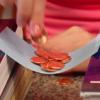
Strengthen a Paper Bridge
Source Institutions
In this quick activity (page 1 of the PDF under SciGirls Activity: Tug O' War), learners will test how many pennies a flat paper index card bridging the gap between two stacks of books is able to supp

Rooftop Gardens
How does a green roof, or roof covered by plants, affect the temperature of the inside and outside of a building? Learners design and build houses to find out the answer.
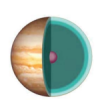
Jiggly Jupiter
Source Institutions
In this activity, learners build edible models of Jupiter and Earth to compare their sizes and illustrate the planets' internal layers.
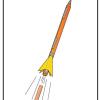
3...2...1 Puff!
Source Institutions
In this activity, learners build small indoor paper rockets, determine their flight stability, and launch them by blowing air through a drinking straw.

Zero-Energy Housing
In this activity, learners investigate passive solar building design with a focus solely on heating.

Solar System Bead Distance
Source Institutions
In this astronomy activity, learners create a model of the solar system using beads and string.
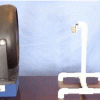
As the Rotor Turns: Wind Power and You
Source Institutions
In this engineering activity, learners will get acquainted with the basics of wind energy and power production by fabricating and testing various blade designs for table-top windmills constructed from
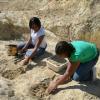
Shoebox Dinosaur Dig Site
Source Institutions
In this activity, (on page 6 of the PDF under SciGirls Activity: Dinosaurs) learners participate in a hands-on fossil excavation.
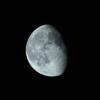
Moonlight Serenade
Source Institutions
In this activity, learners act as the Earth and observe how different angles between the Sun, Earth, and Moon affect the phases of the moon we see each month.
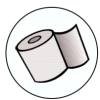
Toilet Paper Solar System
Source Institutions
In this activity, learners build a scale model of the solar system using a roll of toilet paper.

I Want to Hold Your Hand
Source Institutions
In this activity, learners construct a robot-like hand to demonstrate how data is collected when using robotic technology.
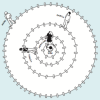
Human-powered Orrery
Source Institutions
In this space science activity, learners work together to create a human-powered orrery to model the movements of the four inner planets.
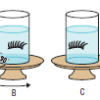
Visualizing How the Vestibular System Works
Source Institutions
In this activity (page 59 of the PDF), learners spin and observe false eyelashes in jars of water (prepared at least 1 day ahead of time) to investigate the effects of different types of motion on the
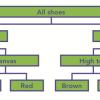
Shoe Dichotomous Key
Source Institutions
In this activity (on page 2 of the PDF under GPS: Cactus Activity), learners will develop their own version of a tool used by biologists, a dichotomous key, by collecting all their left shoes.
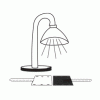
Understanding Albedo
Source Institutions
In this activity related to climate change, learners examine albedo and the ice albedo feedback effect as it relates to snow, ice, and the likely results of reduced snow and ice cover on global temper
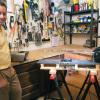
Model Wind Tunnel
Source Institutions
In this activity, learners build a miniature wind tunnel to measure force. Learners construct the model out of Lexan plastic, a fan, and a precise digital scale.

The Thousand-Yard Model
Source Institutions
This is a classic exercise for visualizing the scale of the Solar System.
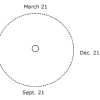
Modeling the Seasons
Source Institutions
This activity provides instructions for learners to create models of the Earth and then to model a "day" on Earth as well as modeling the seasons.
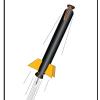
Foam Rocket
Source Institutions
In this activity, learners work in teams build and launch rubberband-powered foam rockets.

Balsa Towers
Source Institutions
Learners work in groups to design and build a tower out of balsa wood. As a motivator, they can compete to build a tower with the highest strength-to-weight ratio.
